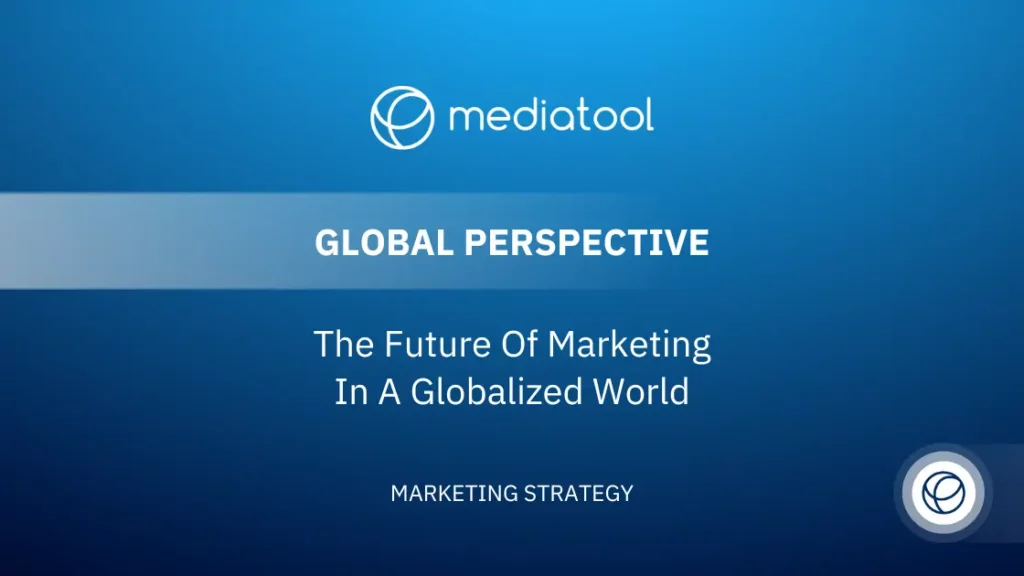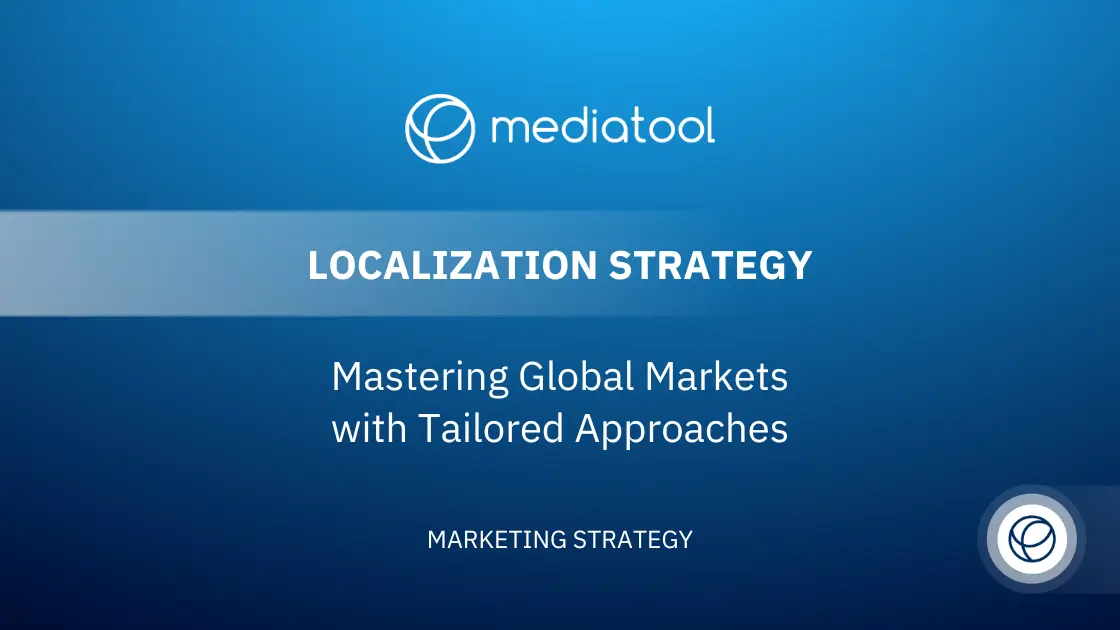In an era where borders are becoming increasingly blurred, adopting a global perspective in marketing and advertising has never been more crucial.
This article dives deep into the essence of what it means to view marketing through a global lens, exploring the myriad ways in which a global perspective enriches strategies, overcomes challenges, and taps into the vast potential of international markets.
From understanding the intricacies of cultural nuances to leveraging digital advancements for global reach, we unravel the importance, development, and impact of global perspectives in the dynamic field of marketing and advertising.
What is a Global Perspective?
In today’s fast-paced world, having a global perspective means understanding and appreciating the complex interconnectivity of global systems, cultures, and economies. It’s not just about knowing what happens across the globe but also how it affects us locally and vice versa.
For marketers, this perspective is invaluable. It allows us to see beyond our immediate surroundings, considering the entire world as a potential market. This mindset is crucial in identifying opportunities for economic growth, cultural diversity, and innovative solutions on a global scale.
Importance of Global Perspectives
Bridging Cultural Gaps in Marketing
A global perspective is crucial for bridging cultural gaps, fostering an environment where diverse ideas and practices coalesce. In marketing, understanding these differences and similarities can be the difference between a campaign that resonates globally and one that falls flat.
By embracing cultural diversity, marketers can develop messages that appeal to various demographics, reflecting the global problem of communication barriers in an interconnected world.
Enhancing Brand Reach on a Global Scale
Adopting a global perspective allows brands to extend their reach beyond local boundaries, tapping into international markets. This approach not only increases potential customer bases but also contributes to economic growth and business development on a global scale.
For example, a well-executed global advertising campaign can transform a brand from a local entity to a worldwide phenomenon, highlighting the power of effective marketing strategies that consider global dynamics.
Driving Innovation Through Diverse Insights
Global perspectives foster innovation by incorporating different viewpoints and ideas from around the world. This diversity is a rich resource for creative solutions to marketing challenges, offering a range of perspectives that might not be available within a single cultural or geographical context.
For instance, a marketing team that draws on global insights can develop unique products or campaign strategies that appeal to a broader audience, setting the brand apart from competitors.
Addressing Global Issues Through Marketing
Marketers have a unique opportunity to address global issues such as climate change, social inequality, and political unrest through their campaigns.
By promoting products or services that seek solutions to these challenges, brands can contribute to positive change while building a strong, socially responsible image. This approach resonates with consumers who are increasingly looking for brands that reflect their values and concerns about the world.
How to Develop a Global Perspective
Developing a global perspective is essential for marketers and advertisers aiming to make an impact on a worldwide stage. This multifaceted process involves deepening one’s understanding, expanding cultural horizons, and continually adapting to the ever-changing global landscape.
Here’s how to cultivate this perspective with a focus on marketing and advertising:
Education and Awareness
Embarking on a journey of education and awareness is the first step. Enroll in a global perspectives class or course focused on international marketing and global advertising trends.
These courses offer invaluable insights into the dynamics of global markets, including the history, politics, culture, and economic systems that shape consumer behavior across different nations. They provide marketers with a solid foundation of knowledge, enabling them to design campaigns that resonate on a global scale.
Cultural Exchange
Cultural exchange is a powerful tool for marketers. Engaging with people from various cultures through an international internship or work placement offers firsthand experience of diverse consumer expectations and communication styles.
Traveling and participating in cultural immersion programs can also enhance one’s ability to create advertising that appeals to multiple cultures. By understanding the subtleties of different cultures, marketers can craft messages that are both globally appealing and locally relevant.
Stay Informed
In the fast-paced world of marketing and advertising, staying informed about international trade news and global trends is crucial. Marketers should regularly follow reputable news outlets, industry reports, and market research that provide insights into global issues, economic trends, social movements, and environmental challenges.
This awareness enables marketers to anticipate shifts in consumer behavior, adapt their strategies accordingly, and identify emerging opportunities in various markets.
Reflective Practice
Maintaining a reflective practice, such as keeping a journal, encourages marketers to ponder their experiences, the effectiveness of different strategies across cultures, and the lessons learned from each campaign.
This reflection is not just about assessing outcomes but also about understanding the impact of cultural nuances on marketing effectiveness. Through reflective practice, marketers can develop a more nuanced approach to global advertising, enhancing their ability to connect with diverse audiences.
Seek Solutions
Finally, seeking solutions to global problems through marketing and advertising initiatives is a profound way to demonstrate a global perspective. Marketers have the unique opportunity to use their platforms to address issues such as sustainability, ethical consumption, and social responsibility.
By integrating these themes into their campaigns, marketers can not only contribute to solving global problems but also build brand loyalty among consumers who value corporate responsibility.
Understanding Global Consumer Behavior
Cultural Influences on Consumer Behavior
Understanding the natural world and its impact on life and consumer habits is key. The way different cultures view products, services, and marketing messages varies widely, shaped by their unique values, traditions, and social norms.
Marketers need to dive into these cultural differences to shape their strategies effectively. For example, the meaning of colors can change significantly from one culture to another, affecting how a brand is received.
Similarly, cultural beliefs around numbers can influence product packaging and marketing tactics. In Japan, for instance, due to the number four being seen as unlucky, products are often packaged in groups of five, demonstrating how deeply cultural beliefs can affect even the smallest details of consumer products.
Economic Factors and Global Consumer Trends
Economic conditions significantly influence consumer behavior worldwide. The expansion of globalization, for instance, has broadened consumer access to a vast array of products and services, impacting both local businesses and consumer decisions.
Marketers need to grasp these economic influences and craft strategies that capitalize on them. By exploring different perspectives, companies can discover avenues for innovation and expansion in different markets.
Recent findings from PwC’s Global Consumer Insights Survey shed light on current consumer trends that could guide these strategies:
- Half of the consumers surveyed anticipate increasing their online shopping budget, indicating a growing preference for digital commerce.
- Over half, or 55%, of consumers consider search engines their go-to resource for pre-purchase research, underscoring the importance of search engine visibility for brands.
- A significant 63% of shoppers have bought items directly from a brand’s website, highlighting the value of direct-to-consumer sales channels.
- Additionally, a substantial 80% of consumers expressed willingness to pay a premium, up to 5% more, for products made sustainably, pointing towards a shift in consumer values towards sustainability.
Adapting to Technological Changes
Technology’s quick evolution has completely changed how consumers connect with brands. Digital media has become a key place for engaging with customers worldwide.
Marketers need to keep up with these technological shifts, using the latest tech to offer more personalized and captivating experiences for customers. This means not only picking up new tools but also understanding how these technologies shift what consumers expect and how they act.
Interestingly, according to Deloitte’s 2023 Global Marketing Trends Report, there’s a growing interest among marketers to dive deeper into new areas, with plans to up their investments in blockchain (41%) and the metaverse (38%). This shows a clear move towards exploring how emerging technologies can further enrich the connection between brands and their audiences globally.
Seeking Solutions to Global Problems
Marketers have a unique position in addressing global problems through consumer behavior. By promoting sustainable products or ethical business practices, companies can influence positive changes.
This approach not only addresses pressing issues like environmental degradation but also resonates with consumers who are increasingly conscious of their impact on the natural world. Different groups within society seek products and brands that reflect their values and offer solutions to the problems they care about.
The Future of Global Marketing

Embracing Technological Innovations
The future of global marketing is intricately linked to technological advancements. From artificial intelligence to blockchain, emerging technologies offer new ways to connect with consumers, personalize marketing efforts, and streamline operations.
On average, about 64% of global marketers anticipate an increase in their advertising budgets this year, with around 13% of them expecting a surge of 50% or more. This significant investment underscores the confidence and readiness of marketers to integrate innovative ideas that align with their strategies. The definition of effective marketing is evolving, driven by these technological shifts.
Navigating the Challenges of Globalization
While globalization offers unparalleled opportunities for reaching consumers worldwide, it also presents challenges. The media plays a critical role in shaping perceptions and information flows, affecting how brands are perceived across different countries.
Marketers need to navigate this complex landscape carefully, ensuring their messages are culturally sensitive and relevant. Adapting to the dynamics of globalization requires a deep understanding of various markets and the ability to pivot strategies in response to global trends and issues.
Sustainability and Ethical Marketing
As environmental and social responsibility concerns intensify, sustainability has emerged as a critical pillar in the development of future marketing strategies. Today’s consumers are in search of brands that deliver not just high-quality products but also make a positive impact on society and the environment. This shift underscores a significant global challenge, urging marketers to endorse sustainable practices and explore solutions that serve both the business and the wider community.
The call for ethical marketing extends to the realm of technology, where 72% of consumers expect transparency in AI practices before committing to a purchase, emphasizing the need for ethical AI use. This trend signals that ethical considerations, including how AI is employed, will mark the distinction for successful global brands moving forward.
Conclusion
Adopting a global perspective in marketing and advertising isn’t just beneficial; it’s necessary.
As we navigate the complexities of the global market, this mindset allows us to be more empathetic, innovative, and effective in our strategies.
It’s about seeing the big picture, understanding our place within it, and making positive contributions, both locally and globally.
Looking to supercharge your global campaign planning and management? Take a tour of Mediatool to see how you can plan, track and report on all your international campaigns from a single centralized platform.





